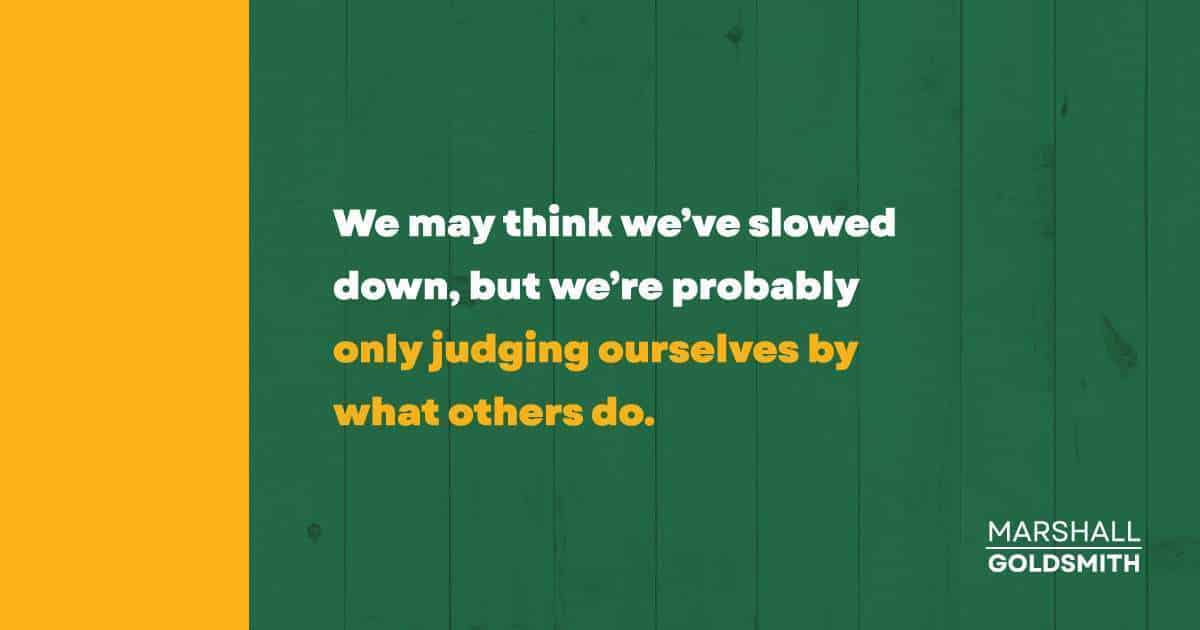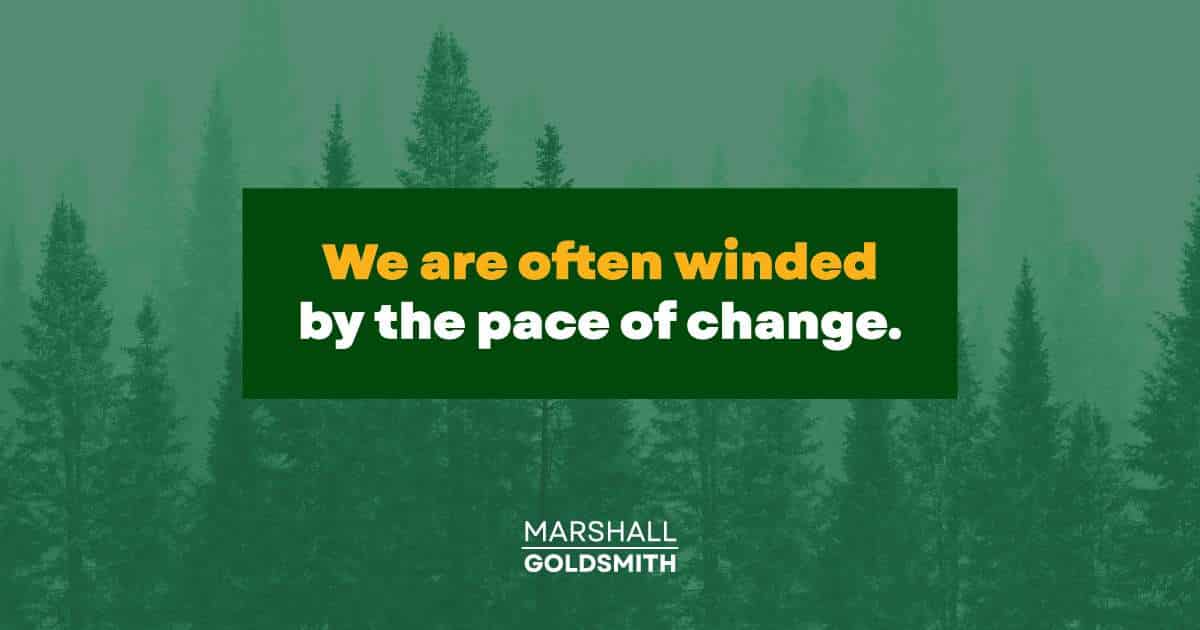Playing Favorites By Marshall Goldsmith There’s a reason I devote...
The recent pandemic has helped us discover many things, not all of them good. I won’t be talking here about the politicization of health, of fake news, or of conspiracy or, most important, of the heavy toll the pandemic took on people’s lives, families, work, and friendships. What the pandemic showed is that almost all of us need to slow down. We were forced to isolate, to adapt to new ways of communicating and, to a large extent, appreciate what we had in the moment.
This is, naturally, a temporary awareness. Most of us live blithely on, without a thought about the transitory nature of our lives, our impressions, our relationships, our happiness. But when we were forced to stay home, to isolate, to look out for ourselves and our loved ones in ways we hadn’t confronted before, we were also forced to examine our priorities.
But slow is relative. We may think we’ve slowed down, but we’re probably only judging ourselves by our experiences, by what others do, by our expectations or some other mind trick.
We are often winded by the pace of change.

If making big claims about society was part of my job description (it isn’t), here’s the one claim (which I learned from Rob Nail of Singularity University) that I would make with confidence: The pace of change you are experiencing today is the slowest pace of change you will ever experience for the rest of your life.
In other words, slow is today, fast is tomorrow.
You’re deluding yourself in pointless nostalgia if you think that, no matter the situation, at some point in the near future—when you finish the “rush” project or when the kids get older and your domestic life calms down—you can revert to a slower time when the pace of life and the speed at which it changed was more relaxed and gentle.
It is not going to happen. You and your workmates won’t immediately chill out when you finish the rush
project. Another emergency job will appear (count on it), and you’ll learn that “rush pace” is your new normal. The same with your hectic domestic life; it won’t calm down when the kids get older or leave the nest. It’s a wheel that won’t stop turning. There’s always something that needs to be dealt with right away.
Some years ago, I hailed a taxi in Manhattan to take me to the airport. The driver drove slowly through midtown traffic, never exceeding 20 mph. He accelerated to a racier 35 mph once we got on the 55 mph roads outside the city. When I asked him if he could go faster, he declined: “This is how fast I drive,” he said. “If you like, I’ll stop and let you out now.” It was as if he had learned to drive in a different time, never noticing that cars had become peppier, roads were better, and passengers were in a hurry.
Our failure to adapt to the quickening pace of change blocks us in the same ways that a failure of imagination does — we cannot interpret what’s happening around us.
If we cannot keep up, we get winded and fall behind. And when we fall behind, we are living in everyone else’s past.
We need to live in our ever-changing present, as ourselves.

Adding Too Much Value Won’t Get You There By Marshall...
C-Suite Master Class: No, But, However By Marshall Goldsmith Continuing...
The Doerr Institute: Expanding the Market for Coaches By Marshall...
Making Leadership Development Part of the College Degree at Rice...
Sanyin Siang – Winner of the Thinkers50 Marshall Goldsmith Coaching...
Thinkers50 Marshall Goldsmith Distinguished Achievement Award in Coaching – Nominees...
Leading with Influence: What Is Influence360°? By Marshall Goldsmith Founder...
Are You a Dominator, Manipulator, Persuader or Influencer? By Marshall...
Leading with Influence: Redefining Modern Influence Part 2 By Marshall...
My mission is simple. I want to help successful people achieve positive, lasting change and behavior; for themselves, their people, and their teams. I want to help you make your life a little better. With four decades of experience helping top CEOs and executives overcome limiting beliefs and behaviors to achieve greater success, I don’t do this for fame and accolades. I do this because I love helping people!
As an executive educator and coach, I help people understand how our beliefs and the environments we operate in can trigger negative behaviors. Through simple and practical advice, I help people achieve and sustain positive behavioral change.